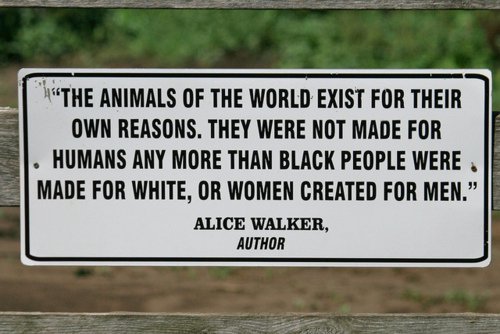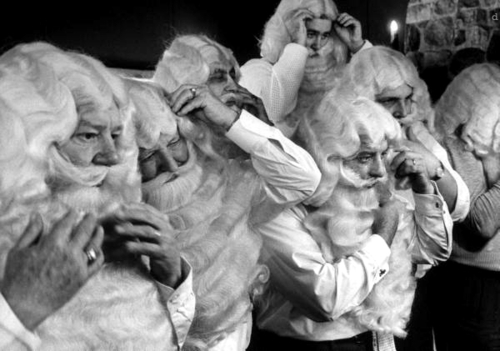Notes on a talk by Peter Levitt at Centre of Gravity, May 3, 2013
Gravity
My students complain that I speak too quietly but I tell them that they know everything already, please don’t make me shout. It’s good to be here at the Centre of Gravity, you know, gravity is the unseen capacity that holds us to the ground. In 1967 I lived in San Francisco, during the summer of love. For me it was the summer of anxiety. Later I moved to Los Angeles where I was employed by a Japanese jazz composer. He would play tunes and then I would give him titles. And he would always say: that’s great. He was friends with Prime Minister Nakasone who had a sitting practice. Did you ever talk to him about it? Yes, the PM said that when he sat down to meditate he rooted himself 500 miles into the earth. He created his own centre of gravity.
Cancelled
The first time I had a teaching gig was to teach poetry in UCLA in 1976. I was very nervous, Los Angeles was the centre of mayhem and madness for the planet. I thought I better get to class early. I got up to the right building, and found the fourth floor and couldn’t help noticing a sign on the door that read “Human Sexuality has been cancelled.” Oh, this is going to be harder than I thought. And then another sign, two doors down, read, “The Meaning of Despair is in Room 212.” Then I knew where the people in the first room had gone.
Our life is nothing but relationships. How we go about them is the core of the matter.
Jonathan (Oberly) told me that in the Jewish tradition when someone turns away from God, both the person and God are diminished. It means that you are not separate from the divine. We’re all in this together.
Intimate
Dogen (1200-1253) was the founder of the Soto Zen tradition. The word intimacy comes up over and over again in his writings. “You should study the self intimately.” He doesn’t mean intimacy in the way that we use the word, his is a radical understanding. Our whole world is intimate with itself. Consciousness is the active functioning of intimacy. For Dogen intimacy is a thoroughness, 100%, leaving nothing out. It’s inside you and you’re inside it. And it can be found in every mote of dust. “All things are all inclusive.” All things include all things. Dogen offers a vision of wholeness.
We live in duality, with homophobia and sexisms, all of our isms are expressions of duality and separation. It’s you over there and me over here. We don’t feel the world as one, and ourselves as part of that one, as that one. Dogen would say: because we’re out of touch with our intimacy. As soon as you think of someone as other then you can wipe them out. In the Vietnam War the American military brass removed the village names on bombing maps so that their pilots would target numbers instead of places where real people might be living.
Taking care of things shows our intimacy. The way we clean our mat. The way we walk into a room. Zen has a reputation for being fussy, and from the outside it can look like an anal retention convention. Or heavy metal stupour. But it’s a practice of being in touch, in relation, with what’s right here, so one-ness can be expressed in activity. I’m strict because I don’t want people to waste their time. I remember a man on retreat who had a terrible headache. He was plumping up his cushion, beating it, really hitting it hard. I told him, “The way you treat your pillow is the way you treat yourself.” The pillow was his own head. It was his own head he was beating.
Enlightenment is just intimacy with all things. It’s an invite to be right here with an open and loving heart. In your own life you always have the ability to be upright, to face what’s coming.
Dogen’s Genjokoan (Actualizing the Fundamental Point)
“To study the way of enlightenment is to study the self. To study the self is to forget the self. To forget the self is to be enlightened by all things.” This body, this person, is the vehicle for enlightenment. It’s right here. To study the self is to forget the self, or at least, the small self, preoccupied with lists and vanities, with bad moods and bad hips. It can keep us from seeing the larger self that’s here, because everything is here, it’s not just me. I look out the airplane window at the snowcapped mountain and say, “What a beautiful body I have.” I am that snowcap, that mountain, that beauty. I’m not separate from it. That is what we call a realization, because I become real to myself. When I forget the self I become intimate with all things. Intimacy equals interdependence. Physicists are 21st century poets, writing math equivalents of practice-born realizations.
While we experience it in our ordinary lives, this “I know you” recognition comes from a place deeper than our personality, our masks and habits. Re-cognition means to know again. To know ourselves again. This is the call of practice. We’ve known this already, and we’re practicing to know it again. The Sandokai describes this meeting of two worlds, of the big self and small self, as two arrows meeting in mid-air. The absolute and relative worlds. We do these practices to meet ourselves. When you become quiet you can become yourself, the largest version of yourself, and this coming home is a compassionate act, an act of generosity. When the duality starts to disappear then we start to show up, we’re right here in this moment, it’s us again.
Close
We stagger, we strive, we laugh, but there is a ground beneath the ground. And that’s the moment we return to the source. It’s life calling itself to come closer. I remember sitting zazen in a monastery and the bell rang and I was asked, “Do you want to go see the roshi?” “No,” I said. He said, “You have to go anyway.” I got to the door and there were so many instructions, where to bow, where to sit, I went through the door and after a blur of bowing I sat down and found myself inches away from the roshi. I was terrified. He smiled at me and crooked his finger in the air between us. Without saying a word his finger said, “Come closer.” He didn’t mean: come physically closer. He meant: don’t be separate.
In 1954 Ginsberg wrote a poem called Song. It ends like this: “Yes, yes, that’s what I wanted. I always wanted to return to the body where I was born.” The body he is talking about does not belong to Naomi Ginsberg, his mother, it is the intimate body of wholeness. The true self, the original self. Everyone has the capacity to say: yes, you’re what I wanted. There’s a response to that yearning, practice. Practice is the self returning to self.
Dogen writes, in an uncanny echo of the Ginsberg poem: Body born before parents
The Body Born Before the Parents
The village I finally reach
Deeper than the deep mountains
indeed
the capital
where I used to live!
We don’t practice to become whole, we practice because we are whole. We don’t practice to become something, this kind of practice constantly affirms our not-enoughness. If we are practicing to become something we must be lesser than that ideal, it emphasizes our shortcomings and smallness. Instead our practice is a reminder of wholeness. We have non-gaining mind, walking without arriving.
I was born without the ambition gene, and it’s worked out pretty well so far. Allan was all out, in his poetry and his life. Viva the exhale! In the last conversation I had with him, a year before he died, I said, let’s put away the Buddhist mumbo jumbo, now tell me, why do we suffer? He didn’t skip a beat before saying, “Lack of candour.” Lack of our willingness to be who and what we really are in our totality makes us suffer and everyone around us suffer. Nelson Mandela said, “It’s not what we don’t know that makes us suffer, it’s our own light. We’re afraid of who we are.” The part that constrains us, pulls us back, creates such an enormous weight.
Under the burden of solitude. The weight we carry is love.
The whole culture tells us: you’re on your own. It’s everyone for themselves. It’s a dog eat dog world. Except dogs don’t eat dogs. Did you notice that?
Original
The self calls to self, it calls us home. Please come home. Please come back. Re-member. There is a deep self that calls to us. Dogen says it is our true self, our original self, our imagination. Our authentic being. We have moments when it touches us, we have glimpses, we see through the keyhole, sometimes the world opens and we open with it. Original means “of the origin”, at the source. And it also means: never seen before. To do something original means: to do something for the first time, but which has its roots in the origin, in the first place.
Alone
When Dogen says that we have original wholeness it’s a blow against our entire culture. Why? Our Christian-Jewish culture has roots in original sin. No one escapes their culture. We have been taught that at the source we are alienated from our wholeness (which creates a dualistic world where separation is the norm). Dogen offers a different paradigm. He insists that non-separation is the nature of existence. The nature of nature. Our culture offers us the myth of the rugged individual. The delusion is that we do things by ourselves. You stand on your own two feet. But you’re standing on the ground, and the ground has support beams, and the support beams have the earth, and the earth has space. What does space stand on? There isn’t anything that isn’t helping me to stand here. You take away those beams and I can’t stand on my own two feet. The message from the dharma is: you are not alone. In Suzukis wonderfully broken english: “Understanding things as it is.”
Buddha is a verb, it’s a constant process of awakening. We’re constantly living and dying. Constantly awakening. I was doing a writing class and they looked so anxious so I told them to put all their books on the floor, and to lay their heads on the desk. Then I walked through the aisles and put my hand on everyone’s head and whispered, “You’re OK.” They just wanted to know they were OK. Our tradition sees us and says: you’re fine. I want to offer you a disposition. Our wanting is nothing to fix, it’s a way that things come to us.
Wang Wei was a Chinese poet from the eighth century who wrote a poem called Hiding the Universe. Where do you hide it? In each thing. You hide it in the universe because that’s the only place it fits. We can find everything we need in every moment.
When we don’t plan, something inside of us wakes up to this moment and knows what to do. We are always ready and have everything we need for this moment. Every moment is the wholeness of life. There’s nothing like touching a flower, touching a self that is a flower. Our life is nothing but holding and releasing flowers.
Everything we ever wanted, or held, or have been known for, or praised for, all this takes us away from being present. It’s not bad necessarily, but we’re rewarded for these distractions. We have round heads. And the received knowledge that culture wants to impart to us is like a square block. The goal of culture is to impose the square block into the round head. How to keep the head round?





